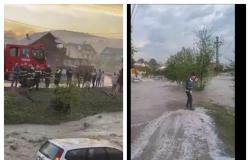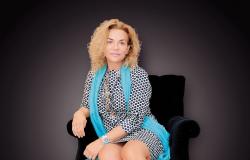Compared to other doctor-entrepreneurs who have opened private clinics in Romania, Valentin Burada, the founder of the Swiss Clinics network of plastic surgery, aesthetics and reconstructive microsurgery, says that he has started a new trend, and this is because he does not have specialized studies at the base, but he is a jurist. And, although it might seem like a disadvantage, the founder claims that this difference became an asset, because he had time to deal with management without having to divide himself between the office and the operating room. How does he want to “steal” the clients of clinics in Turkey, offering them similar services in Romania, at a better cost, and what interventions does he rely on?
We don’t have to reinvent hot water, but simply replicate the Turkish model, which works very well on the medical tourism side. Why? Because we have higher quality than even in western countries. Our doctors really do a good school of medicine, and aesthetics, and these developments in aesthetics that we do internally offer better results than most Western European countries and other areas, and the prices are half. So using these two elements – superior quality and half the price – is the recipe that should work successfully”, says Valentin Burada, talking about Romania’s potential to attract or keep customers who go across borders for various treatments.
He founded the plastic surgery, aesthetic and reconstructive microsurgery network Swiss Clinics almost a decade ago, the business reaching a turnover of 18.5 million lei last year, with estimates of 25% growth for this year. According to the entrepreneur, many of the clinic’s patients, although they choose the services of Swiss Clinics in the field of cosmetic surgery, go to Turkey for hair implant procedures. “It’s frustrating. I want to offer the same quality at the same competitive price, so that Romanian men no longer have to go and take the money out of the country. Thus, in addition to the aesthetic tourism we do now, we want to expand to hair implant tourism and not just tourism. At least with the hair implant it is a matter of craftsmanship, the Turks have a very good price and have experience in this procedure, notoriety created over time and practice. If we can offer this competitive price or even a little lower – because now those who go there also enjoy a mini-vacation, a walk in Istanbul, visit something else – we have to be a little below them to be attractive, and so we will also take new patients.” Moreover, he points out that from the start it would be a gain, because he would no longer give the money on transport, accommodation, on other things that he spends there. “The Turks offer all-inclusive packages, with transport, with hotel, with the whole service. And we did this thing in Romania, basically we have domestic tourism, that is, we can take care of patients from Timisoara, Suceava, Satu Mare, Iaşi, the Moldova area. We take care of domestic transport by plane, we with the agency, get the tickets, and from the airport we pick them up, bring them to the clinic because they probably have nowhere to stay and spend the night in the clinic. So we take care of this matter for distant cities, and in the perimeter of 200 kilometers around Bucharest, we go and pick them up from their homes by car, with drivers, we have a fleet of cars, so we also do internal aesthetic tourism. And we also want to do dental tourism.” In parallel with clients from other cities, the company also has clients from other countries, the top being represented by Italy, Germany and Great Britain, along with clients from Bulgaria, which are fewer. Of the total number of people who call on the services of the business, which currently has a portfolio of over 60,000 unique patients, about 10% are customers from outside, but “the projection is to bring this percentage to around 30%, to reach about two years at this rate”.
One of the most sought-after procedures by this category of customers is the technique performed with Vaser Pro, “a device that cost 120,000 euros and used with the right technique offers spectacular results. So I’m also coming for the device. Such an intervention costs 15,000-20,000 euros in other countries. In our country it costs around 6,000, so the difference is major. But they also come for breast implants or rhinoplasty”.
Overall, in the area of minimally invasive aesthetic medicine, i.e. non-surgical, the prices applied by the company vary between 90 and 1,000-2,000 euros for injectable, non-surgical treatments. If we talk about body aesthetic surgery, then the prices vary between 800 euros, for a small surgical treatment, up to more advanced or mixed treatments, of 10,000-12,000 euros. In general, the entrepreneur says that he imports technologies and equipment that he discovers at various international congresses even before launching at the European level, and now he is considering bringing techniques that have not yet been developed here from the point of view of medical practice , speaking here not only of hair and beard implants, but also of more advanced eyebrow or eyelash implant techniques in women. “So it’s something that could change the industry entirely. Here we are talking about medical know-how, not at the level of technology, because you don’t necessarily need a device. So we have to send someone to Turkey for training. There is another treatment for losing weight with botox in the stomach, it is injected with an endoscope into the stomach and then it relaxes the stomach and there is no longer the feeling of hunger and it is repeated every six months and practically loses weight.”
According to him, there are many complexes that can be solved in this area even among young people, teenagers, “where we are talking about bullying. We have patients who are not necessarily adults, who come with their parents and use these treatments to fix some social problems”. Regarding the minimum age from which the interventions are premised, if we are talking about rhinoplasty, for example, the entrepreneur says that, medically speaking, it must be over 15 years, and in the case of the breast implant, over 16 years, “but already here this is a caprice. On the other hand, breast reduction for gigantomastia in young women can be a medical problem and then it can be intervened even earlier, or otoplasty or other services that can create complications can be solved from a younger age”.
Help from online. At the team level, which includes around 60 employees and 40 collaborators, Burada says that the people who join the company must have three essential values. First of all, they mention empathy, but also perseverance, adding that they must be responsible. “They must be empathetic, both doctors and staff from other departments, other positions. To be willing to collaborate, to listen to others. And they must have perseverance and responsibility. By going through these three values, we pretty much filter the peers. I think that the rest can be acquired, the capabilities can be learned, both technical, professional and of a different nature. We also have many internal courses, including on the medical side. We have in-house classes almost weekly.”
As for him, he says that he is probably the only entrepreneur in the medical field who is not a doctor by profession. “Most clinics and hospitals are built around the medical founder. I deviated from this rule, so to speak, and I can somehow say that it helped me because I had time to do management. If he was a doctor and I worked 8 hours a day, he had no one to do the management, or, I pray, someone could do it, but not at such an applied level and with such great interest. In the beginning, I actually had to learn the medical field and we don’t have any resources. I tell you honestly, YouTube helped me a lot in the first part because I actually watched seminars, courses in this area of aesthetic development.”
To start such a business, he notes that the investment challenge would be the first, but he says that the most important thing is to understand the field, the product, the services, so that you can put everything together and then focus on the management side of the team and on progressive development. “If you want to break into this industry doing a hospital like this is a financial challenge. Know-how is definitely needed. In just three years after the launch, we became market leaders, at least on the minimally invasive side, that is, in 2018-2019 we were declared the largest consumer of hyaluronic acid in Romania by the approved suppliers. How did we get here? We focused a lot on management, on educating customers, on development, and that propelled us very quickly.”
As for the level of investment, he notes that a clinic like the one in Bucharest of the company would require an investment of around 2 million euros, but if we are talking about a practice without an operating room or a smaller clinic, it can be as much as 200,000 euros.
Education, the cornerstone for new business niches. As future goals, the founder says that he is challenged by the idea of contributing to the development of the know-how of doctors in Romania in the area of plastic surgery or dermatology, where “at the moment aesthetic medicine is not taught, only plastic surgery or pathological dermatology is taught. . If you want to be a successful aesthetic plastic doctor or an aesthetic dermatologist, then you have to learn these courses privately, somehow, or go to international congresses, to courses abroad or in Romania. You have nowhere to learn them. And then the biggest entrepreneurial dream would be to create this accredited academy that would educate the workforce in Romania to a level that would put us on the map.”
He says that we already have this Balkan component developed, because women and men in Romania like to look good, and Romanian women are in second place after Russian women in terms of the interest given to these procedures. “In Romania, the degree is of great interest, but unfortunately, it is not so accessible. That is to say, although there is a degree of interest, patients do not have access, unlike countries such as Italy or Germany, where the degree of interest is much lower. But accessibility and financial power is another. We have this mindset, if we also have the educational support, then a recipe would come out and I think tourism would also develop a lot through this method, tourism-tourism, not just medical tourism. And if it puts on the map that quality aesthetic medicine is done in Romania, at fair prices, then yes, it would be a dream come true.”
Regarding a possible expansion across borders, Burada claims that they have already opened a work point in London, in partnership with a local clinic. “It’s a little more difficult at the administrative management level to open work points everywhere, in all cities. Instead, through partnerships with local clinics, sending labor from Romania, i.e. doctors who learned all these advanced techniques here, we can create this formula, practically replicate what we are doing now in Romania, through partnerships with clinics from the European Union . But my dream is to develop Romania, mainly to develop a lot at the national level and after that to offer the recipe to other countries.”
And regarding a scenario that would involve the sale of the business, he says that he received this proposal in 2019 from a large network. “At that time we were still in the process of scaling and we did not consider it appropriate. Our company is not yet at the stage where I would consider this step. We are still in the process of scaling. I estimate that we could reach group maturity in about five years. And yes, at some point I also consider exit.”
Business card
Valentin Burada, founder, Swiss Clinics
1. He is a graduate of Law and legal profession;
2. Over time, as an entrepreneur, he was involved in various businesses in real estate, HoReCa, events and tourism;
3. In addition to the activity in the medical field, he founded and recently launched on the Romanian market the Swiss Beauty Essentials range of food supplements, in the direction of integrative medicine;
4. He is passionate about traveling and cars, practices water sports and horse riding.
Tags: transition law business beauty
-





